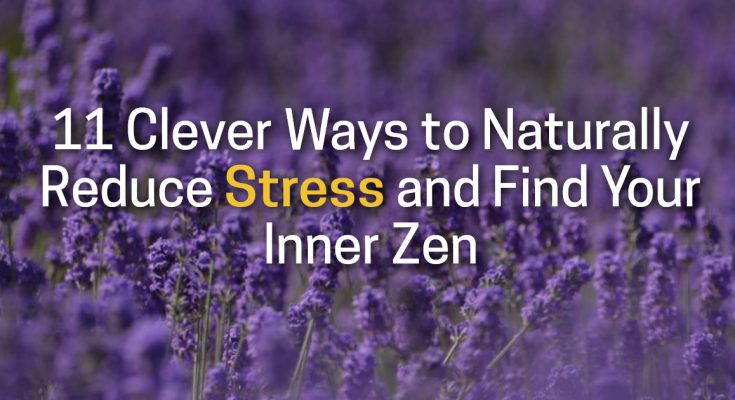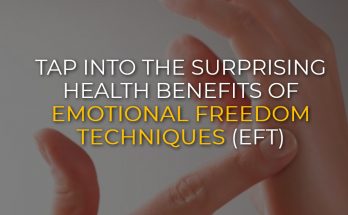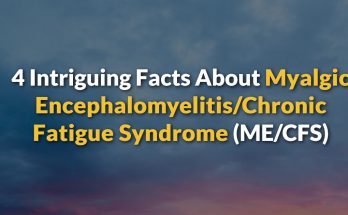We live in a fast-paced world where stress has become an inevitable part of our daily lives.
Whilst some stress is a natural response to life challenges, excessive stress can take a toll on our mental and physical well-being.
In this blog article, we will explore eleven all-natural methods to reduce stress and help you regain tranquillity in this chaotic world.
1. Adaptogen Herbs
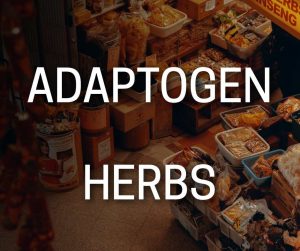
Unleash the power of adaptogens! The secret weapon in the fight against stress.
Adaptogens are unique herbs, mushrooms and other plant substances, which have been shown to non-specifically increase the body’s resistance to stress and have a normalizing effect on physiological processes.
Adaptogens are some of the most promising natural strategies in the management of stress disorders and for preventing the harmful effects that stress can have on the human body.
Examples of popular adaptogens include Astragalus, Panax Ginseng, Schisandra Chinensis, Ashwagandha, Jiaogulan, Cordyceps, Maca Root, Reishi Mushroom, Licorice, Holy Basil (Tulsi), Rhodiola Rosea and Suma Root.
One of the primary benefits of adaptogens is by modulating the hypothalamic-pituitary-adrenal axis (HPA-axis).
Other mechanisms include:
Recent pharmacological studies of a number of adaptogens have provided a rationale for these effects also at the molecular level.
It was discovered that the stress—protective activity of adaptogens was associated with regulation of homeostasis via several mechanisms of action, which was linked with the hypothalamic-pituitary-adrenal axis and the regulation of key mediators of stress response, such as molecular chaperons (e.g., HSP70), stress-activated c-Jun N-terminal protein kinase 1 (JNK1), Forkhead box O (FOXO) transcription factor DAF-16, cortisol and nitric oxide. – [1]
2. Nature Therapy
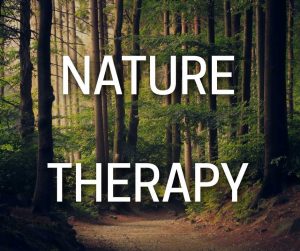
Numerous research studies have shown that simply being in nature, whether it’s a forest, a park, or even a backyard garden, can significantly reduce stress levels and improve mental well-being.
Getting out in nature provides a welcome respite from our technologically saturated lives, allowing our minds to quieten and appreciate the tranquillity that surrounds us.
A study published 2018 confirmed the stress relieving and mood boosting benefits of walking in a natural enviroment, or even viewing scenes of nature. – [2]
Take a stroll in the park, hike in the woods, or simply sit by a scenic spot to reap the calming benefits of Mother Nature.
3. Vitamin C – The Stress Busting Vitamin!
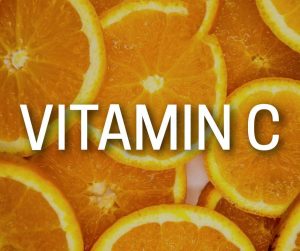
Vitamin C, also known as ascorbic acid, is not only essential for fighting off colds, but also plays a vital role in regulating stress responses in the body.
In fact, the adrenal glands are amongst the organs with the highest concentration of vitamin C in the body.
The function of the adrenal glands is crucial when it comes to a healthy stress response, and Vitamin C plays a key role as a co-factor in nourishing the adrenals to carry out key functions such as adrenal steroidogenesis and catecholamine synthesis.
The vitamin C deficiency is widely associated to stress-related diseases. – [5]
Good dietary sources of Vitamin C include berries, oranges, citrus fruits, kiwis, bell peppers and herbal sources such as amla berry, acerola cherry and rosehip.
Recommended Product: Acerola Cherry Extract (Provides 218mg Natural Vitamin C Per Capsule)
4. Nervine Herbs (Chamomile, Oatstraw, Passionflower etc)
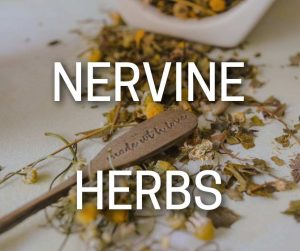
Nervines are plants and herbs which strengthen, support and tonify the nervous system.
Nervine herbs have a long traditional history of being used medicinally in the treatment of stress-related complaints such as anxiety, depression, insomnia and other nervous system related disorders.
Examples of popular nervine herbs include Chamomile, Gotu Kola, Oatstraw (Avena Sativa), Lemon Balm, Passionflower, Skullcap and Valerian.
These time-tested herbal allies possess an array of natural compounds that gently alleviate anxiety, calm frazzled nerves, and improve sleep quality.
5. Aromatherapy & Lavender
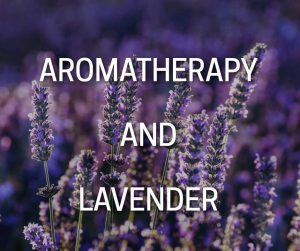
Aromatherapy is the therapeutic practice of using aromatic substances such as essential oils for medicinal healing purposes.
Harnessing the enigmatic power of scents, aromatherapy offers a fragrant path to unwinding and finding inner peace.
Lavender in particular is a popular plant remedy and essential oil for reducing stress and anxiety.
A recent systematic review published September 2022 evaluated the effect of lavender on stress in individuals concluding:
The pooled estimation of this systematic review and meta-analysis revealed that lavender significantly reduces individuals’ stress.
Therefore, it seems that the use of lavender can be considered as a part of a stress management programs, especially in student groups. – [7]
Recommended Product: Kalms One A Day Lavender Oil 80mg Capsules
6. Embrace The Power Of Exercise!

Exercise and regular physical activity is another very powerful natural tool in the fight against stress.
Gentle, low-intensity, meditative-movement type exercises such as Tai Chi, Qigong and Yoga appear to be some of the best choices for reducing stress and supporting the nervous system.
It’s worth noting that excessive exercise can actually increase stress by elevating levels of stress hormone cortisol in the body.
Both excessive endurance exercise and even high intensity exercise have been shown to increase levels of cortisol.
7. Magnesium

Numerous studies have now found low magnesium status in patients suffering from psychological stress or associated symptoms.
Infact, clinical research has found that stress can potentially increase magnesium loss, causing a deficiency; and in turn, magnesium deficiency could enhance the body’s susceptibility to stress, resulting in a magnesium and stress vicious circle. – [8]
A vicious cycle of chronic stress inducing magnesium loss, which in turn causes a greater exaggerated stress-response.
Magnesium deficiency can also induce a systemic stress response by activation of neuro-endocrinological pathways according to the research.
While there are many ways to manage stress, one often overlooked solution lies in this remarkable calming mineral.
Magnesium is an essential mineral that plays a crucial role in over 300 biochemical reactions in our bodies.
One of its most important functions is its ability to regulate stress hormones. Magnesium helps to calm the nervous system, reduce anxiety, and promote relaxation.
Foods like spinach, avocado, nuts, seeds, and dark chocolate are all rich in magnesium and great for boosting dietary intake.
For those who wish to supplement with magnesium, its worth mentioning that not all magnesium supplements are created equally.
There are many different forms of magnesium available, all of which have different absorption rates.
The best absorbed forms of Magnesium supplements include Magnesium Citrate, Magnesium Malate and Magnesium Glycinate.
8. Grounding (Earthing)
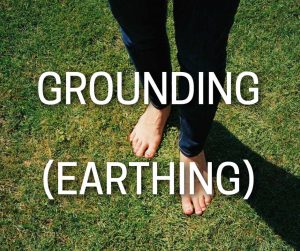
Grounding (Earthing) is one of my favorite natural alternative therapies in the management of stress, and in particular balancing the autonomic nervous system.
Scientific studies have shown that grounding has numerous benefits for our physical and mental well-being.
When we come into direct contact with the Earth, electrons from the ground flow into our bodies, neutralizing free radicals and reducing inflammation.
This can lead to improved sleep, reduced pain, and increased overall vitality.
Many alternative health skeptics try to claim grounding (earthing) is nothing more than pseudo-science.
However, a growing body of decent quality research is now finding numerous measurable potential health benefits of grounding.
A study published in 2004 evaluated the biological effects of grounding the human body during sleep as measured by cortisol levels and subjective reporting of sleep, pain, and stress.
The study found:
Results indicate that grounding the human body to earth (“earthing”) during sleep reduces night-time levels of cortisol and resynchronizes cortisol hormone secretion more in alignment with the natural 24-hour circadian rhythm profile. – [9]
9. Meditation & Mindfulness
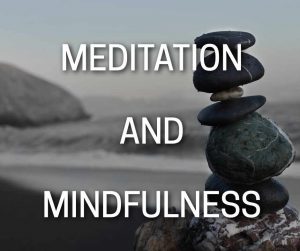
Meditation and mindfulness meditation programs have been shown to lower stress, whilst improving both psychological and physical well-being.
A systematic review and meta-analysis published 2017 evaluated the effects of meditation practices on physiological markers of stress.
The systematic review and meta-analysis concluded:
When all meditation forms were analysed together, meditation reduced cortisol, C – reactive protein, blood pressure, heart rate, triglycerides and tumour necrosis factor-alpha.
Overall, meditation practice leads to decreased physiological markers of stress in a range of populations. – [10]
Another systematic review and meta-analysis published 2014 determined the efficacy of meditation programs in improving stress-related outcomes (anxiety, depression, stress/distress, positive mood, mental health–related quality of life, attention, substance use, eating habits, sleep, pain, and weight) in diverse adult clinical populations.
The systematic review and meta-analysis concluded:
Clinicians should be aware that meditation programs can result in small to moderate reductions of multiple negative dimensions of psychological stress. – [11]
Diaphragmatic breathing (DB) is usually a key component of most common types of meditation and the likes of meditative movement exercise forms such as Tai Chi and Yoga.
Slow, deep diaphragmatic breathing is one of the few voluntarily methods of being able to manipulate and modulate the autonomic nervous system.
10. L-Theanine
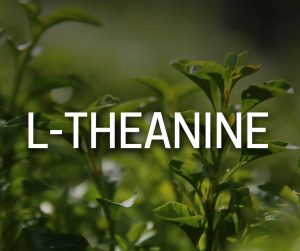
L-theanine is a unique non-protein amino acid found primarily in green tea (Camellia sinensis) and has been reported to possess anti-stress effects.
The magic behind L-theanine lies in its ability to increase levels of inhibitory neurotransmitters, whilst blocking the overproduction of excitatory neurotransmitters.
L-theanine can induce relaxation through the enhancement of alpha wave activity in the brain.
A randomized, placebo-controlled, crossover, and double-blind trial published in 2019 examined the effects of four weeks L-theanine administration on stress-related symptoms and cognitive functions in healthy adults.
The study concluded:
Our findings suggest that L-theanine has the potential to promote mental health in the general population with stress-related ailments and cognitive impairments. – [12]
A systematic review published in 2015 evaluated the current literature on the effect of Theanine (L-THE) intake, in the form of nutritional supplements, on stress and anxiety levels in humans.
The systematic review concluded:
The findings in four studies indicated significant improvements in reducing stress and anxiety.
L-THE supplementation can assist in reducing acute stress and anxiety in people experiencing stressful situations. – [13]
11. Emotional Freedom Techniques (EFT)
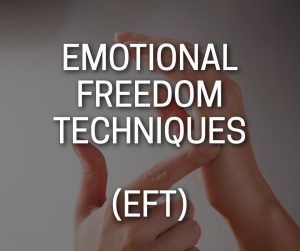
EFT also known as Emotonal Freedom Techniques or “tapping” is a free, self-help technique that can be done in the comfort of your own home with powerful stress reduction benefits.
Infact, numerous studies have confirmed the mental health benefits of EFT, showing that it can even help to reduce symptoms of PTSD (Post Traumatic Stress Disorder) in a variety of different clinical populations.
A meta-analysis published 2017 assessed the efficacy of EFT in treating PTSD by conducting a meta-analysis of existing RCTs.
The meta-analysis concluded:
The analysis of existing studies showed that a series of 4-10 EFT sessions is an efficacious treatment for PTSD with a variety of populations.
The studies examined reported no adverse effects from EFT interventions and showed that it can be used both on a self-help basis and as a primary evidence-based treatment for PTSD. – [14]
Another randomized controlled trial published 2020 in direct replication of Church, Yount, and Brooks (2012), the study examined changes in stress biochemistry and psychological distress symptoms in 53 participants randomly allocated to one of three 60-min group interventions:
The study concluded:
Findings support the original study indicating EFT to be an efficient and effective brief treatment for reducing biological markers of stress. – [15]
References
[3] Levels of Nature and Stress Response
[4] Vitamin C is an important cofactor for both adrenal cortex and adrenal medulla
[5] The role of vitamin C in stress-related disorders
[7] The effect of lavender on stress in individuals: A systematic review and meta-analysis
[8] Magnesium Status and Stress: The Vicious Circle Concept Revisited
[10] Mindfulness mediates the physiological markers of stress: Systematic review and meta-analysis
[11] Meditation Programs for Psychological Stress and Well-being: A Systematic Review and Meta-analysis
[13] Theanine consumption, stress and anxiety in human clinical trials: A systematic review
The information in this article has not been evaluated by the FDA and should not be used to diagnose, cure or treat any disease, implied or otherwise.
Always consult with a qualified healthcare professional before making any significant dietary or lifestyle changes including supplements and herbs.
